Scientists Say These Foods Can Literally Rewire Your Mood
Feeling low might have more to do with your lunch than you think. Nutrition researchers are uncovering connections between what we eat and how we feel by pointing to everyday foods that interact with the brain through gut health, neurotransmitters, and sugar regulation.
While they aren’t magic fixes, these foods could support an upbeat mood over time.
Fatty Fish

Credit: Getty Images
Salmon, tuna, and other fatty fish contain omega-3 fatty acids like EPA and DHA, which have been linked to lower depression scores. A 3.5-ounce serving of cooked salmon provides more than triple the minimum recommended daily intake of these nutrients.
Dark Chocolate
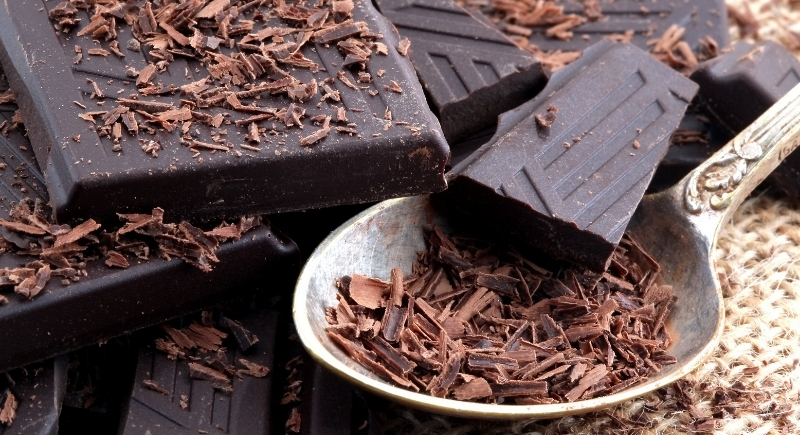
Credit: Getty Images
A few squares of dark chocolate can activate the release of beneficial compounds such as polyphenols and flavonoids. These may enable better spirit and brain function. To get the most potential benefit without the crash, try to pick varieties that have 70% cocoa content and minimal added sugars.
Bananas
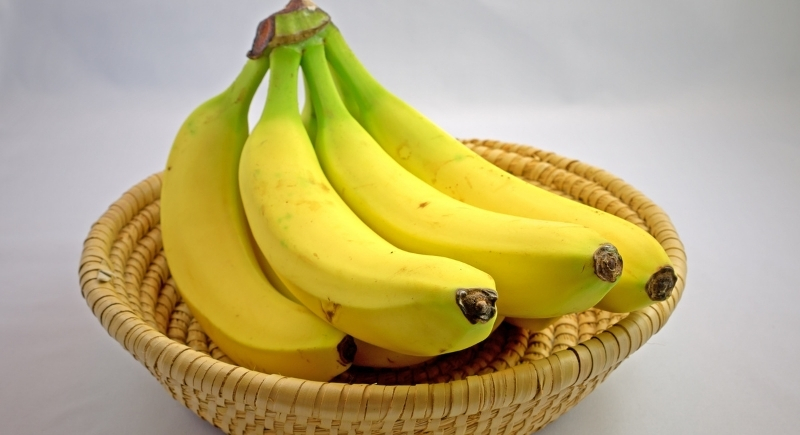
Credit: Getty Images
Sliced over oatmeal, blended into smoothies, or mashed into pancake batter—this fruit works across meals and snacks. When frozen, bananas create a creamy base for homemade desserts. Beyond convenience, they also provide vitamin B6 for neurotransmitter production and fiber to moderate blood sugar swings.
Whole-Foods Diet
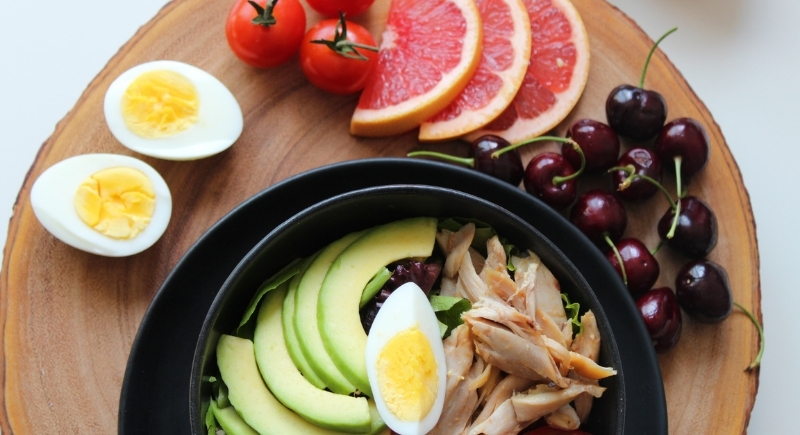
Credit: pexels
Dietary patterns like the Mediterranean diet—rich in fruits, vegetables, legumes, whole grains, and healthy fats—show strong correlations with improved mental health outcomes. In one study, nearly a third of participants with depression saw symptoms improve or go into remission after following such a diet for three months.
Coffee
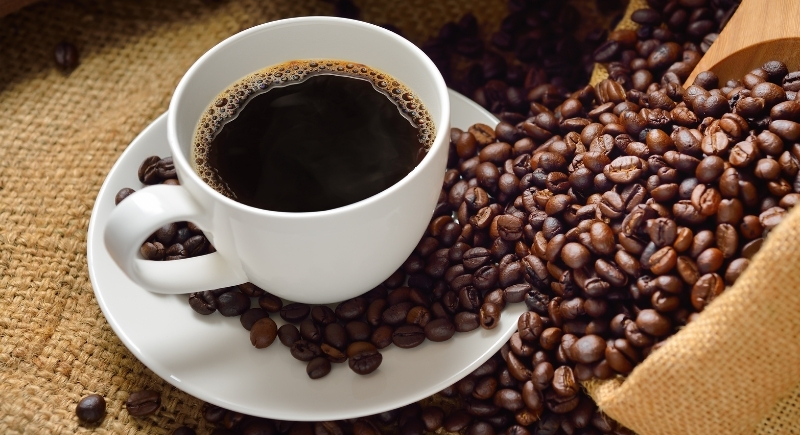
Credit: pixabay
If your morning doesn’t really start until that first cup of coffee, you’re not alone—and research suggests it might do more than wake you up. Caffeine can boost mood and alertness in moderate amounts, and regular coffee drinkers often report fewer symptoms of depression. Just keep an eye on how much, since too much can backfire with anxiety or poor sleep.
Oats
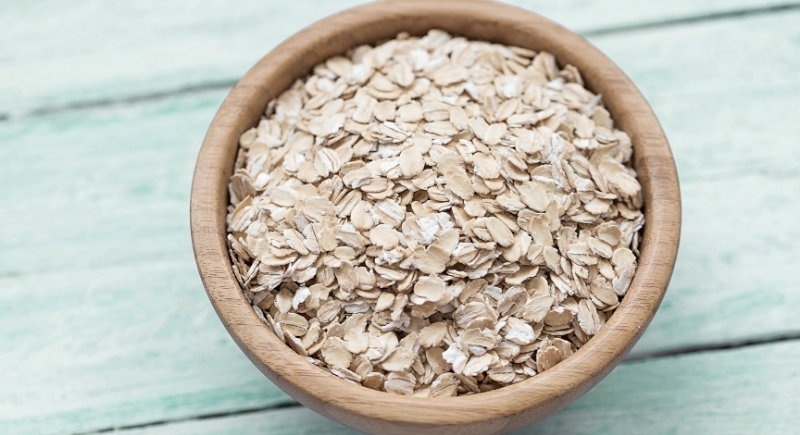
Credit: Canva
We all know oats are a good source of fiber, but their benefits stretch beyond digestion. That fiber feeds gut microbes and steadies sugar levels, both factors linked to emotional stability. A bowl of oatmeal sprinkled with berries and nuts adds antioxidants and healthy fats to the meal.
Citrus
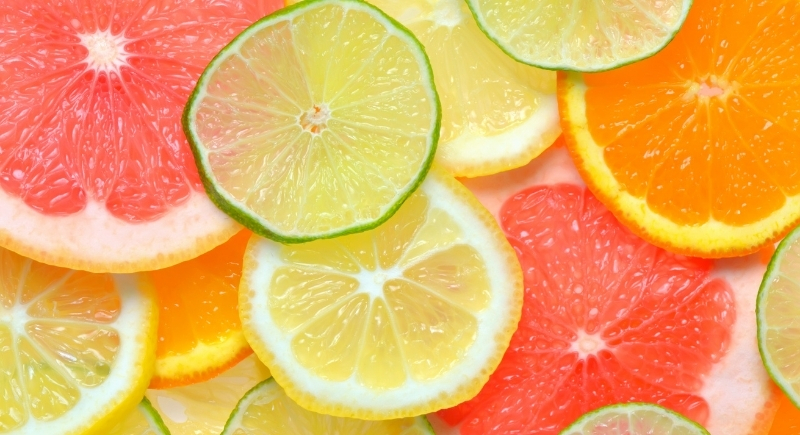
Credit: Getty Images
You might not think twice about peeling an orange, but that habit could help your mood. Regular citrus eaters were found to have higher beneficial gut bacteria tied to reduced inflammation and better emotional health.
Antioxidants
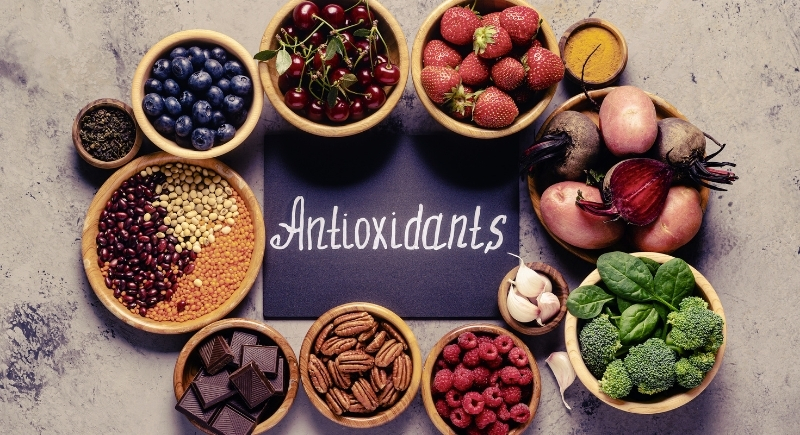
Credit: Canva
Oxidative stress occurs when unstable molecules, known as free radicals, damage cells in the brain—something experts associate with mood disorders like depression. Antioxidants help neutralize these molecules before they can cause harm. Regularly eating foods like broccoli, plums, and cinnamon may reduce this stress.
Fermented Foods
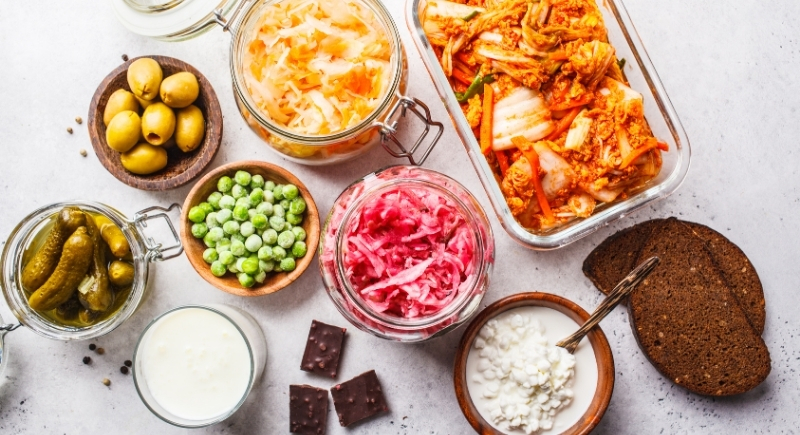
Credit: Canva
Yogurt, kefir, kimchi, and kombucha can contribute to a healthier gut microbiome. Long before science explained why, many cultures leaned on fermented foods for well-being. Now we know gut bacteria produce serotonin and send signals to the brain, so those age-old practices may have helped mental balance, even before anyone called it the gut-brain axis.
Berries
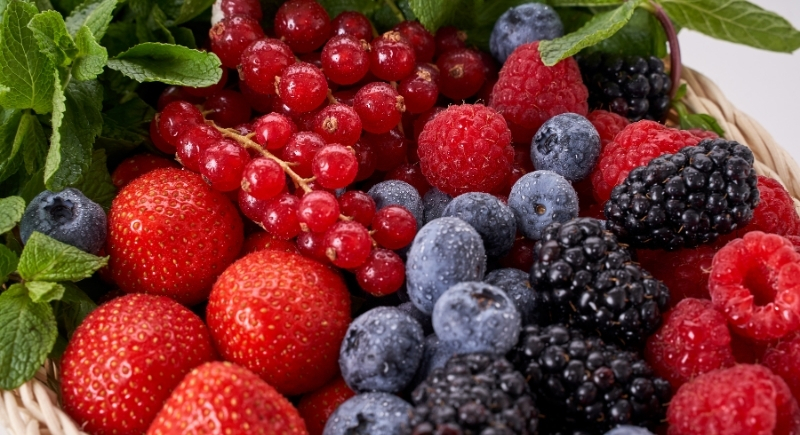
Credit: pixabay
Often grown in cooler climates and harvested at peak ripeness, berries bring several benefits to the table. Their deep colors come from anthocyanins—compounds that protect the brain from oxidative stress. They offer a simple, refreshing way to support both physical and emotional health.
Fiber
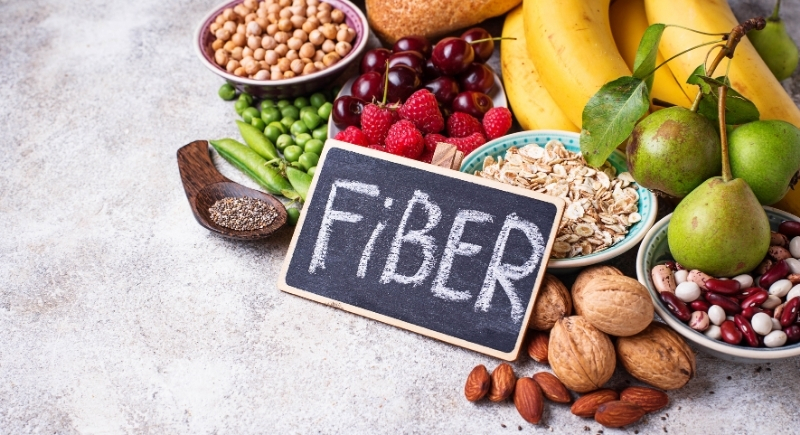
Credit: Getty Images
Fiber is essentially fuel—not just for your digestion but also for the helpful bacteria in your gut. These microbes thrive on it and produce compounds that may ease inflammation and pave the way for steadier emotions. Fiber is found in beans, whole grains, and vegetable.
Nuts and Seeds
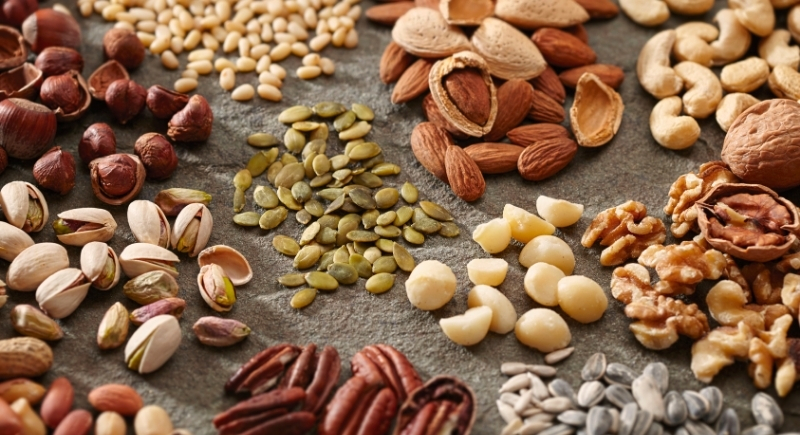
Credit: Getty Images
Grab a handful of almonds between meetings or sprinkle sunflower seeds on your lunch salad—small habits like these can add up. Nuts and seeds contain healthy fats, vitamin E, and antioxidants that protect brain cells from stress. They’re easy to keep around and even easier to work into a daily routine.
Whole Grains
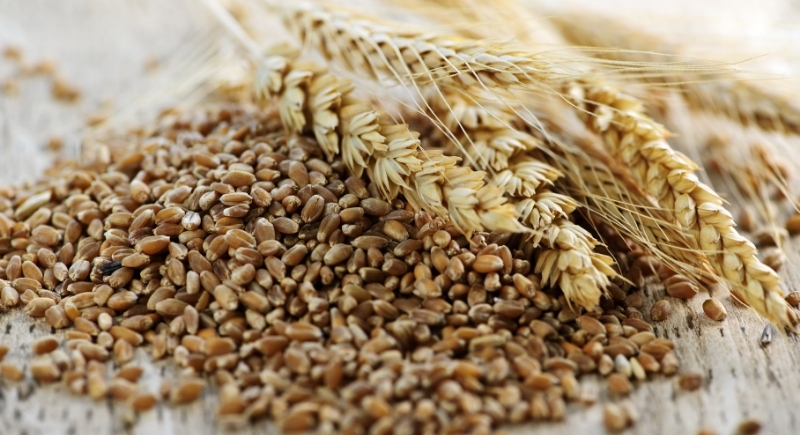
Credit: Canva
Long before the modern push for whole foods, grains like barley and bulgur were staples in traditional diets across the Middle East and Asia. These unrefined grains contribute fiber and vitamin E, both linked to brain health. Regularly including them might preserve intellectual clarity and energy over the long haul.
Avocados
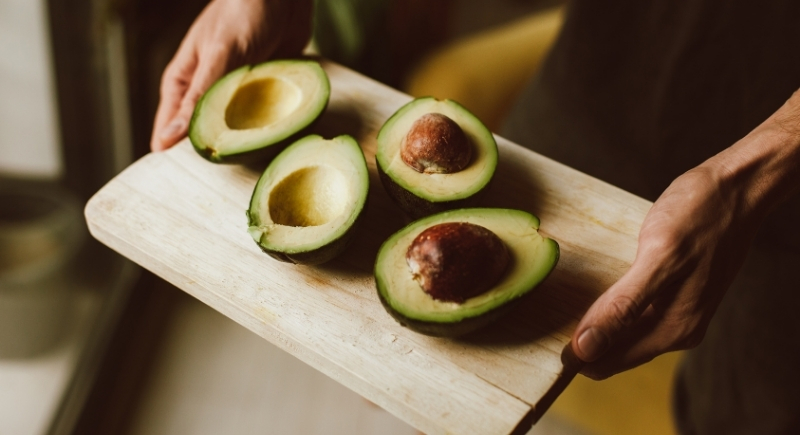
Credit: pexels
Adding avocados to meals adds creamy texture and delivers monounsaturated fats that may help lower blood pressure, a factor tied to cognitive decline. According to research, diets high in these fats are associated with better brain performance over time. Combined with fiber and key nutrients, avocados bolster long-term brain and heart health.
Legumes
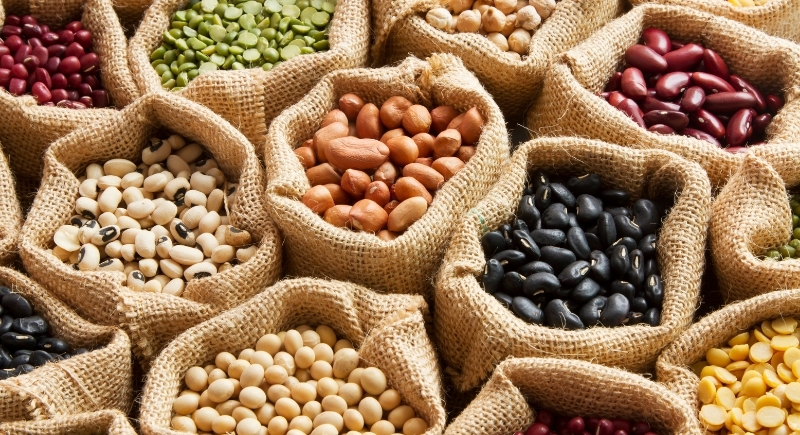
Credit: Getty Images
Remember those bowls of lentil soup or plates of beans at family dinners? You may not have realized it back then, but they were supplying fiber for microbial diversity and B vitamins, which support mood regulation. Their slow-burning carbs also keep sugar levels stable, making it easier to stay mentally steady throughout the day.